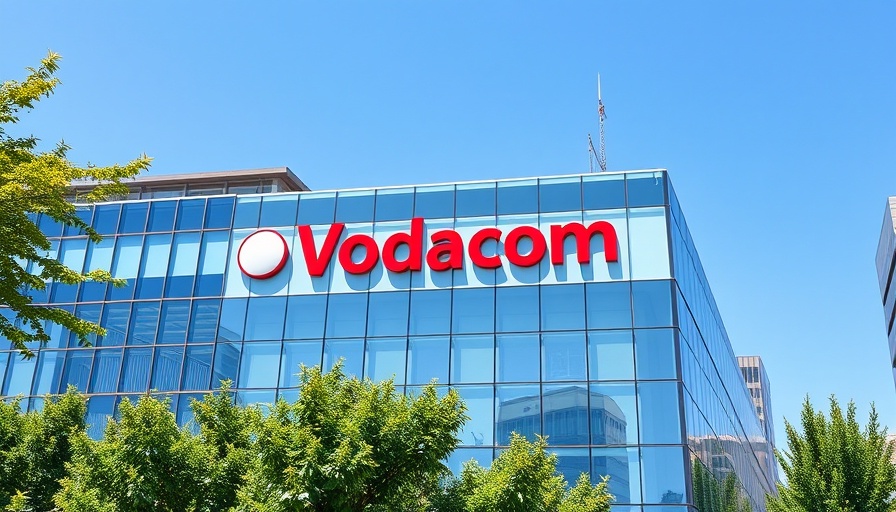
Vodacom's Bold Move: Taking the Battle to the Courtroom
In a pivotal moment for the telecommunications sector in South Africa, Vodacom, the second-largest telecom operator, has escalated its long-standing struggle over a proposed merger with fiber company Maziv by taking the controversy to court. Initially, the merger aimed to solidify Vodacom's position in the ambitious fiber expansion plans across South Africa, but regulatory hurdles initiated a significant setback.
Understanding the Implications of the Vodacom and Maziv Deal
The merger was originally approved back in 2022 by the Independent Communications Authority of South Africa (ICASA), signaling a potential positive shift in access to broader digital services for consumers. However, in late 2024, the Competition Commission raised concerns, suggesting that the merger could dangerously reduce market competition. This concern culminated in the South African Competition Tribunal blocking the merger, defining a critical moment in how major corporations navigate the regulatory landscape in South Africa.
The Future of Fiber Connectivity in South Africa
No matter the outcome of the court's hearings scheduled for July 2025, this case could reshape the telecommunications landscape. Many experts believe that if Vodacom wins, it may lead to increased mergers across the sector, potentially attracting more investments. Conversely, a loss could send a clear signal that regulatory frameworks are stringent, empowering watchdogs to hold corporations accountable and ensure fair play in the market.
What This Means for Tech Entrepreneurs and Investors
For tech entrepreneurs and investors looking at African startups, particularly in the fintech and automation sectors, the implications go beyond just the merger. The Vodacom case illustrates the critical intersection of technology, regulation, and market dynamics. Investors seeking opportunities in AI, blockchain, and smart cities across Africa should note how regulatory bodies influence competition and innovation pathways. It’s vital to understand regulatory landscapes as they adapt to an increasingly digital world.
Call to Action: Stay Ahead in the Tech Landscape
As the courtroom battle unfolds and the industry watches closely, it's crucial for stakeholders in Africa's tech ecosystem to remain informed. An exciting future awaits those willing to navigate these challenges and seize the opportunities that arise from them. Stay tuned for developments, as understanding these shifts can enhance your strategies for investing in or launching ventures at the forefront of the continent’s tech revolution.
 Add Row
Add Row  Add
Add 


Write A Comment